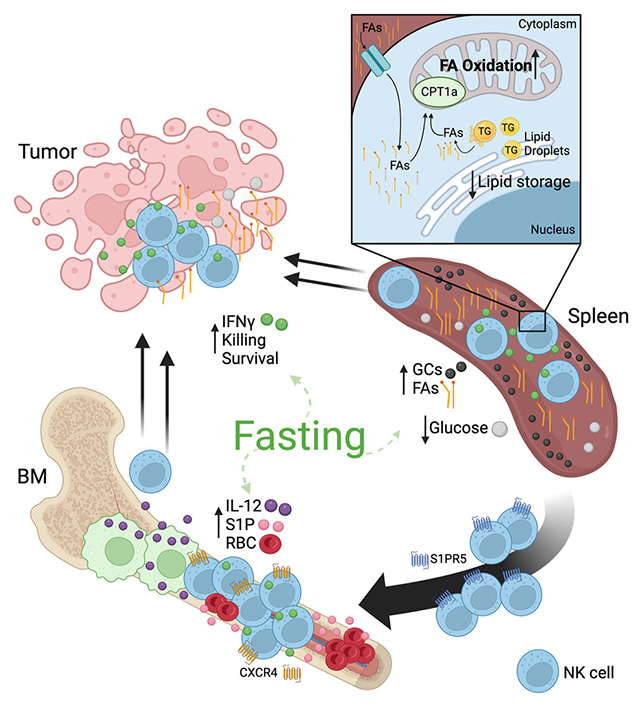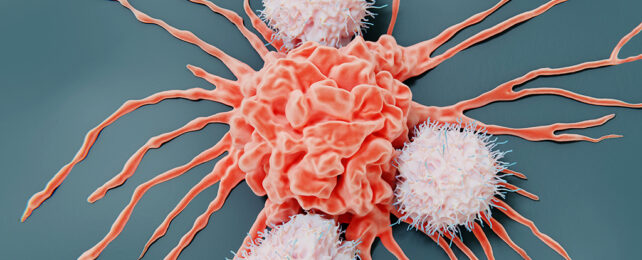A restricted diet could help the immune system tackle cancer. In a new study in mice, fasting was shown to effectively reprogram the metabolism of specific white cells tasked with killing tumors.
An international team of experts led by researchers from the Memorial Sloan Kettering Cancer Center in New York looked at white blood cells called natural killer cells (or NK cells) in the animals.
The immune system uses these cells to take on threats to the body, including cancer and viruses. Unlike antigen-seeking T cells, NK cells are able to destroy threats they haven't encountered before. The more the body can direct these immune cells towards a tumor, the better the chances of survival.
However, NK cells are operating under a lot of stress when they're around cancer.

"Tumors are very hungry," says immunologist Joseph Sun, from the Memorial Sloan Kettering Cancer Center. "They take up essential nutrients, creating a hostile environment often rich in lipids that are detrimental to most immune cells.
"What we show here is that fasting reprograms these natural killer cells to better survive in this suppressive environment."
The researchers put mice injected with tumor cells on a diet where they could eat freely, apart from two 24-hour periods of water-only fasting in each week. As expected, there was no weight loss overall, but there were drops in blood glucose levels, triggering a rise in free fatty acids which are used as an alternative energy source by NK cells.
Most importantly, the NK cells inside the mice adapted, using the free fatty acids rather than glucose as energy. It was as if they were getting reinforcements or better training against the cancer through the extra production of cytokines – the proteins that tell the immune system to do its job.
What's more, the NK cells were redistributed throughout the body. Many found their way to the bone marrow, where they were exposed to high levels of interleukin-12: this protein triggers a biological reaction that further helps in fighting cancer.
"With both of these mechanisms put together, we find that NK cells are pre-primed to produce more cytokines within the tumor," says immunologist Rebecca Delconte from the Memorial Sloan Kettering Cancer Center.
"And with the metabolic reprogramming, they're more able to survive in the tumor environment, and specialized to have improved anti-cancer properties."
The study authors are keen to emphasize that no fasting regime should be started without first consulting a doctor. What's healthy for one individual might not be for another.
As for this research, it's still early days, needing to be verified in humans. There are a number of questions left to be answered, such as whether or not all NK cells go through the same retraining over their lifespans.
"That's the million-dollar question," says Sun. "And one that we have only begun to answer using the cell-labeling techniques we used in this study."
The research has been published in Immunity.
